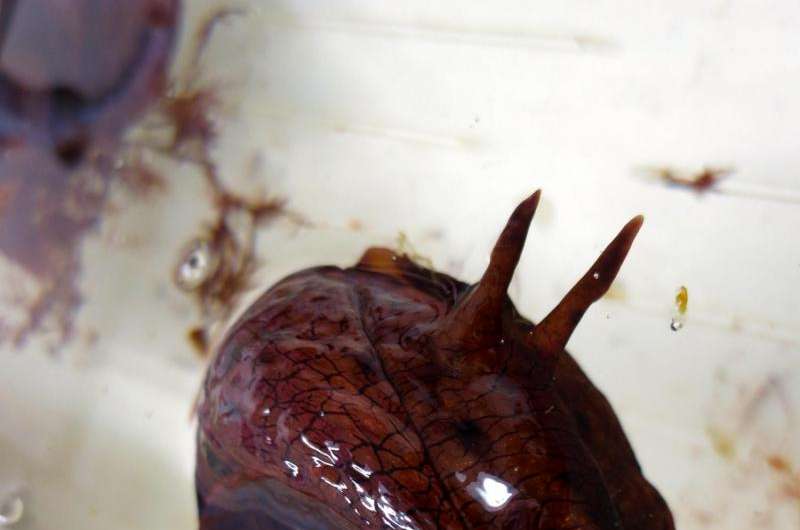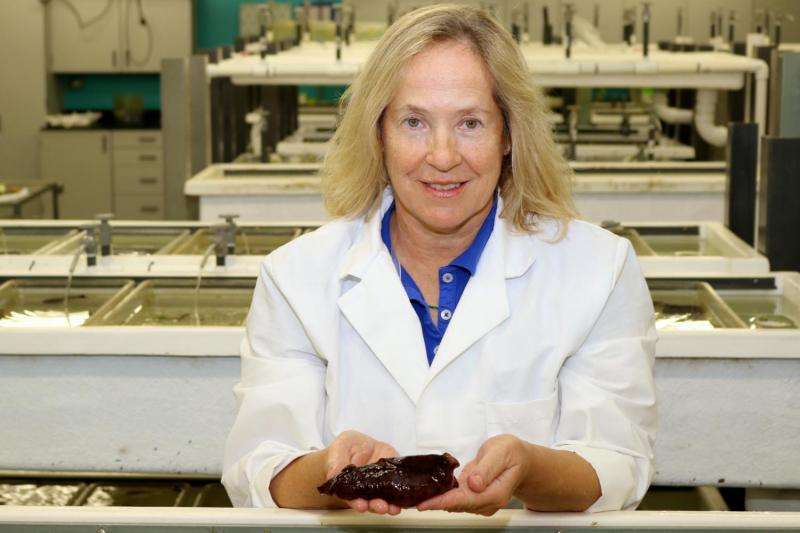Study of 'senior citizen' marine snails uncovered how nerve cells fail during learning

A new research study on marine snails uncovered the first cells in the nervous system to fail during aging. The University of Miami (UM) Rosenstiel School of Marine and Atmospheric Science researchers' findings are important to better understanding the underlying mechanisms of age-related memory loss in humans.
Scientists performed tail reflex experiments on the hatchery-reared California sea hare Aplysia californica, which has a one-year lifespan and is a common neurological model used to understand the function of the nervous system. They studied two distinct age groups in families of snails - reproductive maturity and old age. The tail startle reflex of the animal is known to slow, lessen, and finally disappear as it ages.
The researchers measured tail response learning to electric shock to determine patterns of aging in both the nerve cell that senses touch of the tail, called sensory neurons, and the motor neurons that signal the tail muscle to contract.
"In a previous study focused on identification of the first cells in the nervous system to fail during aging of this reflex we found that sensory neuron aging drives aging of the circuit, said Lynne Fieber, associate professor of marine biology and ecology at the UM Rosenstiel School. "Here we examined the performance of sensory and motor neurons in short-term memory, and found that both neuron types had impaired performance in old Aplysia."
The learning experiment, called sensitization, exposed each animal to a repeated stimulus of varying intensities to gauge its reaction. The sensitization experiment should result in a forceful tail contraction to a tail touch, the result of the animals learned reaction to a more intense stimulus, in this case an electric shock.

The results showed that short-term sensitization to tail touch was absent in aged Aplysia californica, and that the sensory and motor neurons were affected by aging in specific ways, which resulted in an inability of old animals to learn.
"The failure of these animals to learn sensitization may be related to the inability of their aged neurons to respond to chemical messengers," said Fieber.
More information: The study, titled "Aging in sensory and motor neurons results in learning failure in Aplysia californica" was published in the May 13 issue of the journal PLOS One and can be accessed here: journals.plos.org/plosone/arti … journal.pone.0127056
Journal information: PLoS ONE
Provided by University of Miami


















